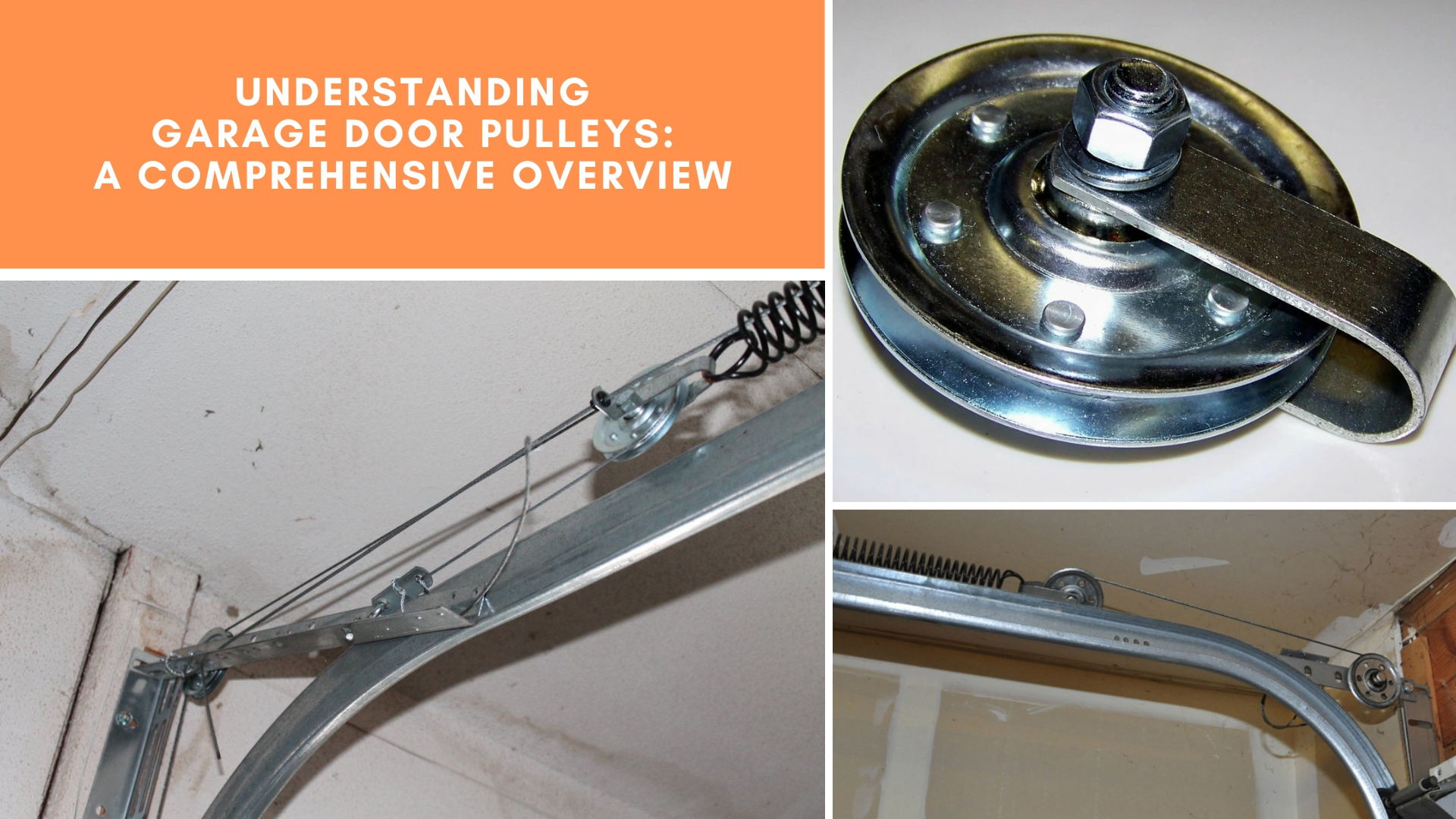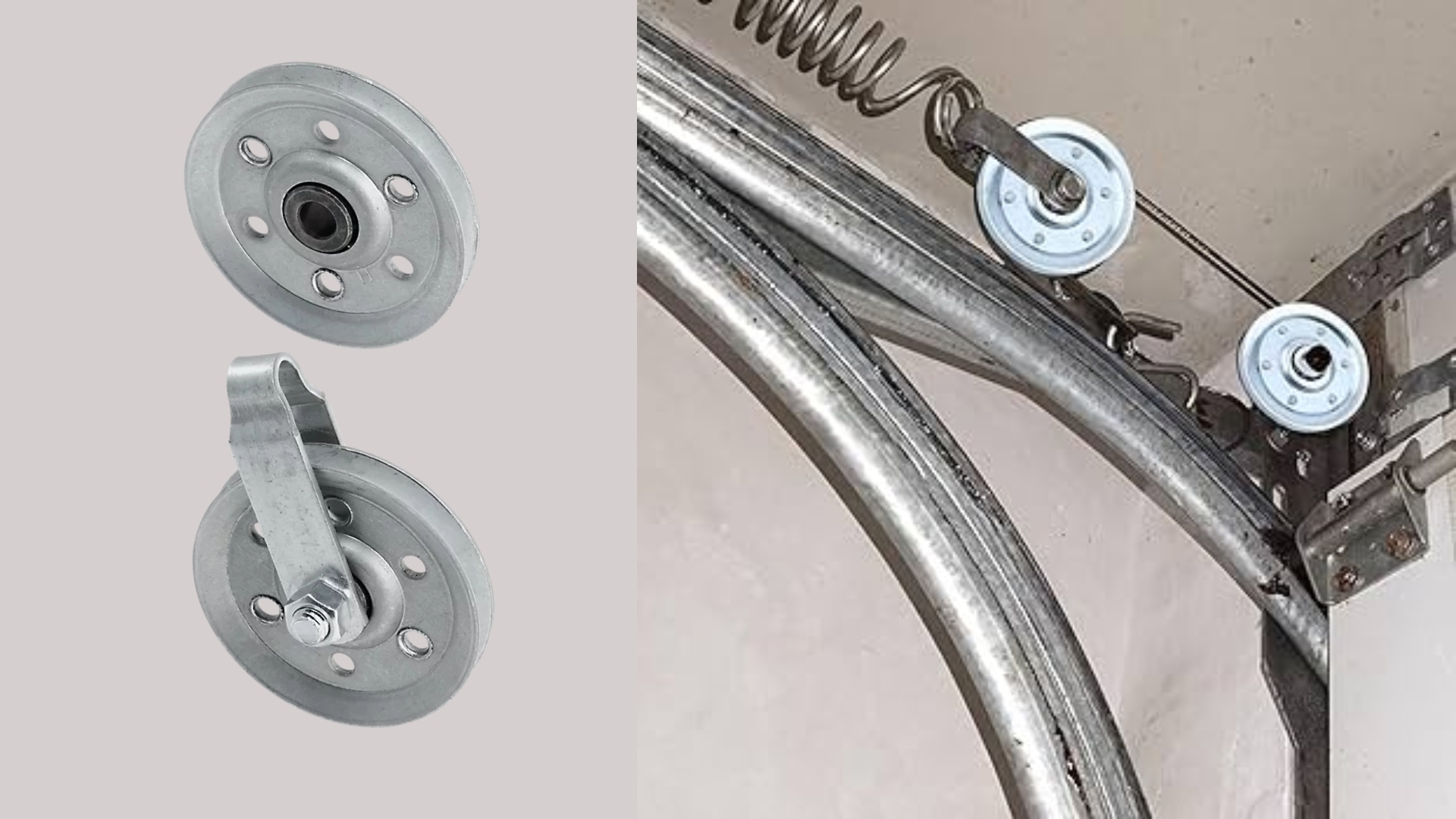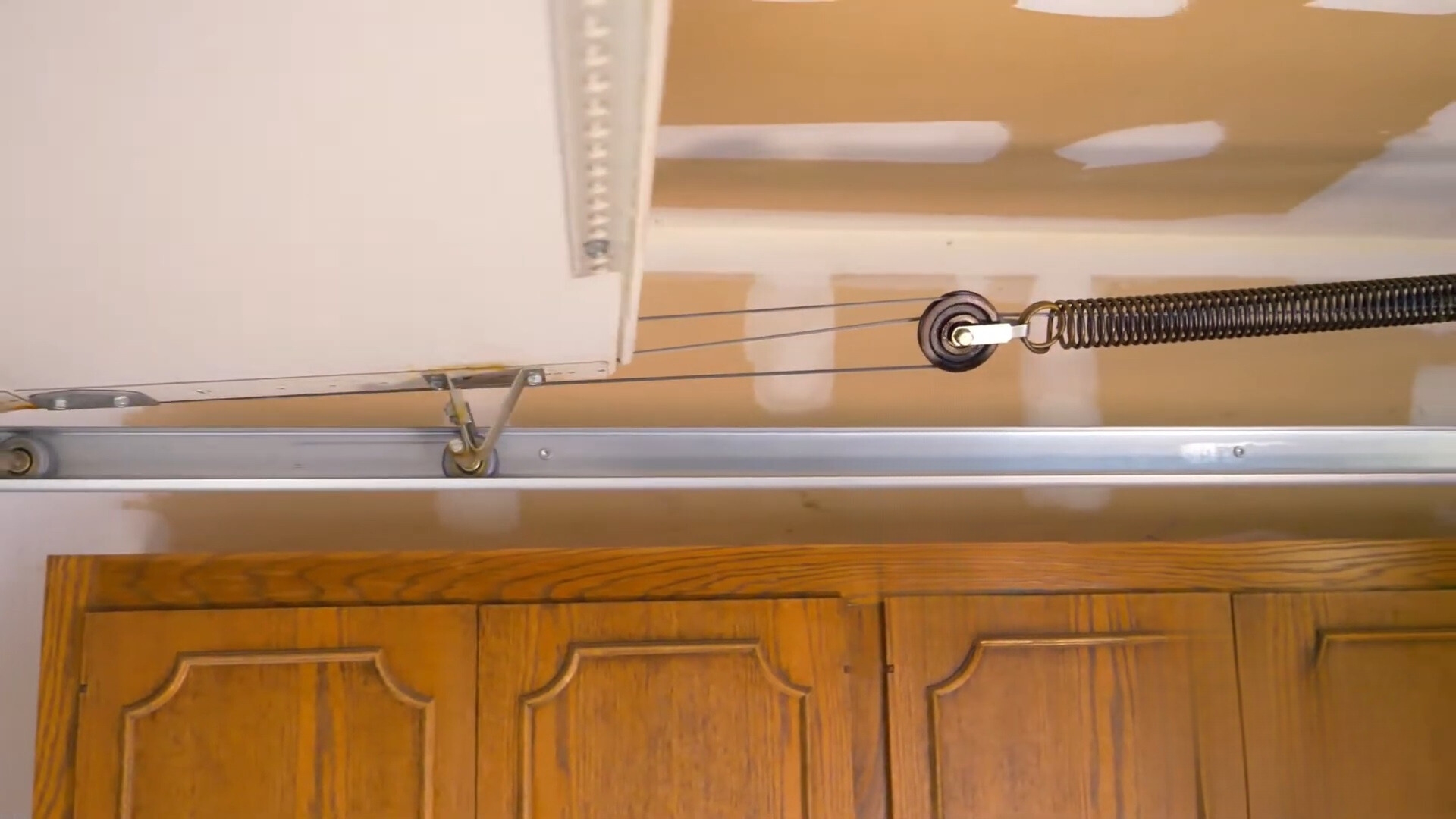
A garage door does more than just keep your car safe. They enhance your home’s security, boost its curb appeal, and even help with energy efficiency. But none of this would be possible without a well-functioning system. At the heart of this system, you will find garage door pulleys playing a crucial role. But are they exactly? Knowing how these pulleys work and how to keep them in good shape will save you time, money, and stress. So keep reading to find out how these small but durable parts help keep the garage door’s weight even at all times.
How Garage Door Pulleys Work
Garage door pulleys are important for helping your door open and close like clockwork. Think of them like the wheels on a bike. Just as those wheels help you move forward, pulleys help lift the heavy door up and down with ease. These small but mighty devices work together with garage door cables to balance the weight of the door. So, when you push the button to open the door, the pulleys take on the hard work, making sure the door glides up along its track. Without well-functioning pulleys, the door would struggle to move or might get stuck halfway.
Types of Pulleys
Garage door pulleys come in different types, each playing a crucial role in the door’s operation. Here are two of the most common types:
- Fixed Pulley: This type of pulley stays in one spot, helping balance the weight of your garage door. Think of them like a hinge on a door—they do not move around much, but without them, things would not open like they should.
- Movable Pulley: Meanwhile, this pulley shifts around as your garage door moves up and down. They make lifting the heavy door easier, similar to how a backpack strap adjusts to lighten your load.
Each pulley type affects how smoothly your garage door operates. When all the pulleys work together, your door opens with ease and seals every time.

Signs of Worn or Broken Garage Door Cable Pulley
Recognizing when your garage door pulleys have worn or broken can save you from bigger headaches down the road. Here are some common signs that your pulleys might need attention:
Squeaking or Grinding Noises
Your garage door may have worn-out pulleys if it makes squeaking or grinding noises when you open or close it. These noises are often a sign that the pulleys are struggling to do their job.
Uneven Door Movement
When your garage door is uneven, it might be due to faulty pulleys. If one side of the door seems slower or does not align right, your pulleys could be the issue.
Loose or Tangled Cables
Garage door pulleys help guide the cables that lift your door. If you notice loose or tangled cables, it might be the result of damaged or misaligned pulleys. This circumstance can make your door difficult to open and close.
Difficulty Opening the Door
If your garage door feels heavier than usual or requires extra effort to open, worn pulleys might be to blame. Pulleys that are not correctly working can make your door harder to operate.
Visible Wear and Tear
Sometimes, you can see the damage. If you spot any cracks, rust, or other signs of wear on your pulleys, it is time to consider replacing them.
If you watch out for these signs, you can catch pulley problems early and avoid bigger, costlier repairs. If any of these issues sound familiar, it might be time to check your garage door pulleys.
Why Pulley Maintenance Is Important
Garage door pulleys might not be the first thing you think about when it comes to home maintenance. Imagine trying to lift a heavy box with no help—it would be pretty tough, right? That is what it is like for your garage door if the pulleys are not working properly. When they are well-maintained, your garage door opens and closes without a hitch. It keeps the door system from moving in jerky, annoying ways and keeps other parts from wearing out too soon.

So, check your cable pulleys now and then. If you notice any signs of trouble or if the door is not moving as smoothly as it should, it might be time for a little maintenance. Taking care of your pulleys now helps you avoid more significant issues and keeps your garage door working as it should.
DIY Garage Door Pulley Troubleshooting
If your garage door is acting up, checking the pulleys is a good place to start. First, inspect the pulleys. Are they loose, cracked, or worn down? If you spot any of these issues, it might be time for a repair. Listen carefully for squeaky or grinding noises when you open or close the door.
For a quick fix, try lubricating the pulleys with a garage door lubricant. That can help them move more freely and reduce noise. But remember, while minor fixes are possible, pulleys play a big role in the system’s safety. If the problem seems too big, feel free to call a garage door Lincoln expert.
When to Call a Garage Door Professional in Lincoln
Garage door pulleys are part of a larger system that requires precise adjustments. If not installed or repaired correctly, it could lead to a malfunctioning door—or worse, an injury. So, while it is tempting to save money by trying a DIY garage door repair, it is safer to let an expert handle it. They have the right tools and knowledge to fix the problem in no time, all while keeping everyone safe and sound.
If you are unsure whether your pulleys need attention, a professional garage door inspection can give you peace of mind. Let the experts at Titan Garage Doors Lincoln NE take care of your pulleys so you do not have to worry about unexpected breakdowns.
Garage Door Service Near Me
Need help with your garage door pulleys? At Titan Garage Doors Lincoln NE, we make it easy for you. Whether you need installation, maintenance, or repair in and around Lincoln, our garage door experts can handle it all. Plus, you can pay over time, so you do not have to worry about upfront costs. Let us take care of your garage door while you focus on what matters most. Call us today for a free estimate.

